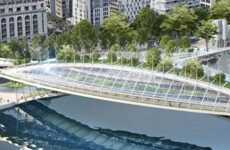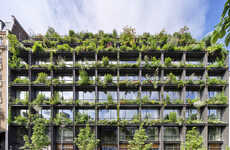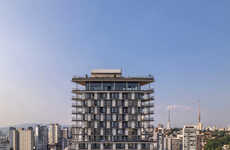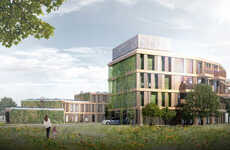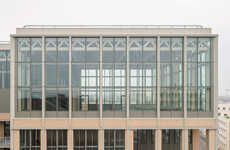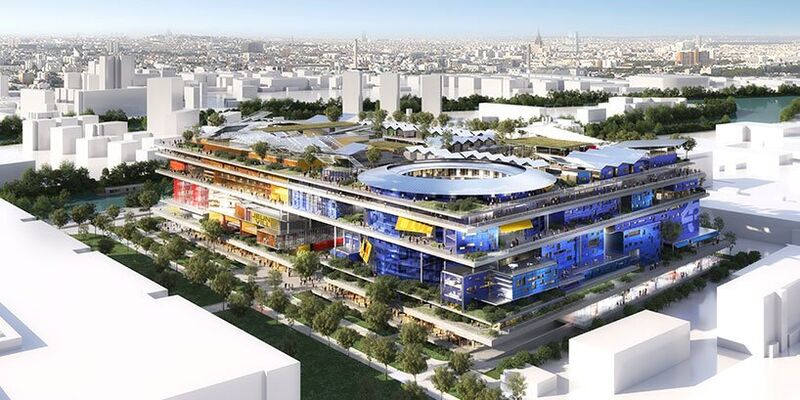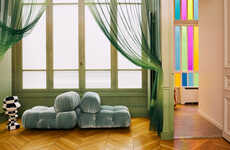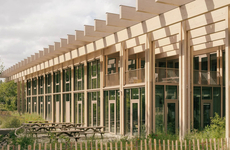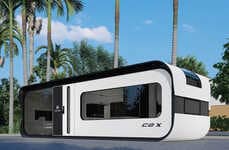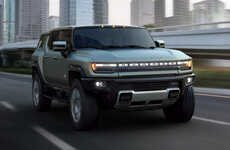
Jean Nouvel Designs a Sustainable Vertical Neighborhood
Elena Rahman — April 13, 2021 — Eco
References: jeuneville & designboom
Jean Nouvel introduces Jeuneville, a sustainable neighborhood in Paris, set to be completed by 2025. Nouvel's vertical neighborhood reinvents Parisian life through its low carbon footprint design, while responding to the issue of urban sprawl. Jeuneville's sustainable neighborhood will feature 100,000 square meters of workspace geared towards the creation and tech start-up companies, and 30,000 square meters of sustainable public green space. Jeuneville expects to employ 6,000 people, and house 1,500.
Jeuneville's sustainable neighborhood is designed to focus on its dwellers' well-being by creating an encompassing space to live, work, produce, and vacation. With its anticipated state-of-the-art technology, Jeuneville's sustainable office spaces are transformable to accommodate future businesses. Residence of Jeuneville's sustainable neighborhood will have access to many communal spaces to establish a community environment.
Photo Credits: designboom, jeuneville
Jeuneville's sustainable neighborhood is designed to focus on its dwellers' well-being by creating an encompassing space to live, work, produce, and vacation. With its anticipated state-of-the-art technology, Jeuneville's sustainable office spaces are transformable to accommodate future businesses. Residence of Jeuneville's sustainable neighborhood will have access to many communal spaces to establish a community environment.
Photo Credits: designboom, jeuneville
Trend Themes
1. Sustainable Vertical Neighborhoods - Opportunities for architects and urban planners to design and develop eco-friendly vertical communities that prioritize on the well-being of dwellers to address the issue of urban sprawl.
2. Green Tech Hubs - Creating green tech hubs within sustainable neighborhoods could help in the recognition and growth of startups working to address environmental issues.
3. Flexible Office Spaces - Flexible, eco-friendly office spaces with state-of-the-art technology could transform to meet the needs of future businesses while accommodating the sustainable needs of the community they serve.
Industry Implications
1. Architecture - Architects have the opportunity to design and develop affordable, sustainable vertical neighborhoods, using eco-friendly building materials to reduce the carbon footprint of urban communities.
2. Urban Planning - Urban planners can work towards creating environmentally friendly urban communities that prioritize on the well-being of the dwellers, contributing towards the overall objective of reducing urban sprawl and promoting sustainable living.
3. Green Technology - Creating green technology hubs within sustainable neighborhoods could help startups in the recognition and growth of their innovations that address environmental challenges, encouraging corporate social responsibility.
5.1
Score
Popularity
Activity
Freshness


